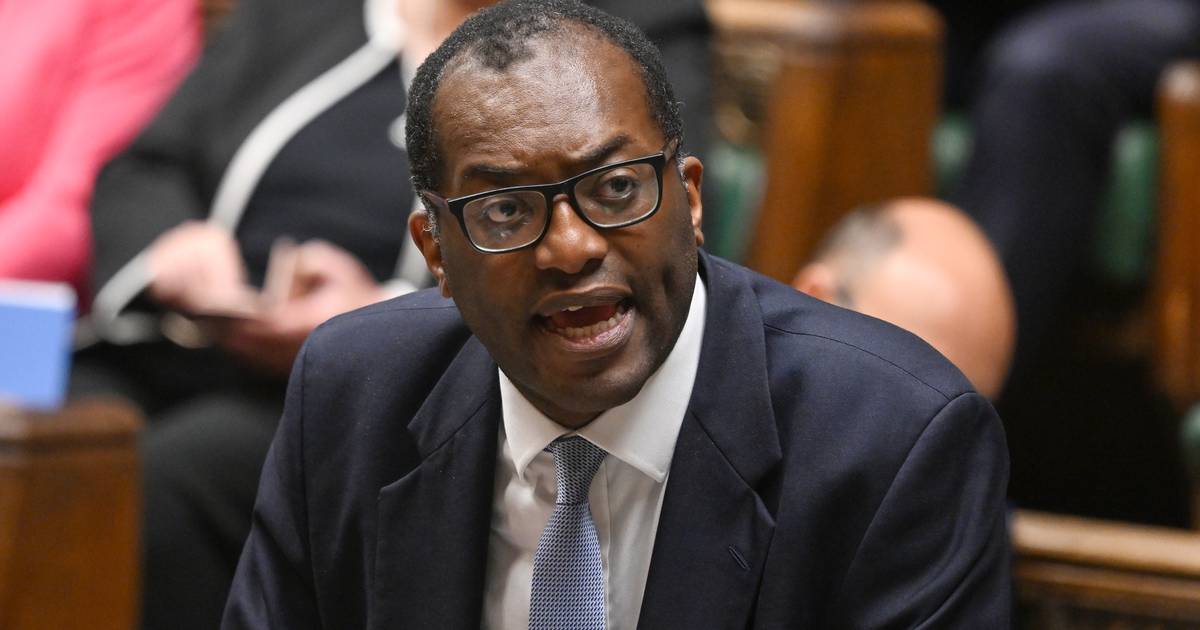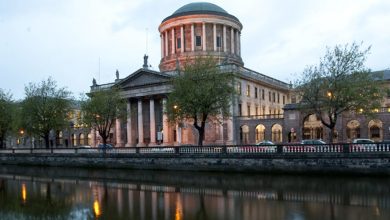The pound fell to a record low on Monday as UK government bonds extended heavy losses, prompting expectations of an emergency hike in UK interest rates following the package of cuts. Chancellor Kwasi Kwarteng’s taxes last week.
The currency lost as much as 4.7% to trade at $1.035 in the early morning before stabilizing around $1.07, after Mr Kwarteng pledged over the weekend to stick to his campaign to cut taxes, which warned that the UK was entering a currency crisis. .
The onset of fall brought the pound to its lowest level on record. He sharpened criticism of Friday’s budget statement, when the Chancellor announced a massive new round of borrowing to fund £45billion in tax cuts and a package of measures to curb rising energy bills.
“The UK is now in the midst of a currency crisis,” said Vasileios Gkionakis, Citigroup’s head of foreign exchange strategy.
Traders increased bets on an emergency interest rate hike to stabilize the pound ahead of the next Bank of England meeting in November. Derivatives markets forecast a rise of 0.75 percentage points in one week and an increase of more than 1.5 percentage points by the November meeting. Rates are expected to reach 6% by May, up from the current level of 2.25%.
The central bank declined to say whether it was planning an emergency interest rate meeting this week.
Reflecting the significant shift in interest rate expectations, Britain’s government debt continued to fall on Monday after Friday’s sharp selloff, the worst day for the gilt market since the early 1990s.
The 10-year gilt fell in price, pushing yields up 0.32 percentage points to 4.12% from around 3.5% before Friday’s budget announcement.
The Treasury did not comment on market movements on Monday. Mr Kwarteng told the Financial Times in an interview last week: “I am always calm. Markets move all the time. It is very important to keep calm and focus on the longer term strategy.
The UK lacks the resources, and probably also the will, to try to intervene directly in the currency markets to support the pound, unlike its peers in Japan, who intervened last week. However, the BoE’s monetary policy committee has met outside of the normal cycle when markets have been turbulent in the past in an effort to restore calm, usually by lowering rates. Since gaining independence in 1997, the central bank has never raised rates between scheduled meetings.
Sushil Wadhwani, asset manager and former BoE policymaker, said: “If I was still at the BoE, I would be tempted to announce an additional meeting in a week.”
The Westminster tax cuts come as the UK is already set to spend £150billion to subsidize energy costs for consumers and businesses. A large part of these borrowings must be financed by gilts.
Unlike the deep tax cuts of the 1980s, Mr Kwarteng is borrowing tens of billions of pounds to fund his plans, adding to demand at a time when the BoE is raising rates to tame inflation.
“It looks like we’re headed for a spiral that we usually see in emerging market crises, where policymakers struggle to reassert their credibility,” said Mansoor Mohi-uddin, chief economist at Bank of Singapore.
Mr Mohi-uddin said investor confidence in the pound had been undermined by expectations that Britain’s public debt was now on an “unsustainable upward path” as the country still posted a “gaping current account deficit”. .
“If we continue to see these huge movements in the market, the Bank of England will have to raise interest rates, perhaps up to a percentage point, to try to stabilize the pound,” he said. added.
The Bank of England raised interest rates by 0.5 percentage points on Thursday, following a third straight increase of 0.75 percentage points by the US Federal Reserve a day earlier.
“We had argued that the way forward for the pound would depend heavily on the monetary response to near-term inflation and well-targeted fiscal measures, but so far delivery has been less than encouraging on the two fronts,” FX analysts at Goldman Sachs said.
“With large unfunded fiscal spending without a monetary policy counterpart to offset the inflationary impulse, the currency is likely to weaken further.”
Shadow Chancellor Rachel Reeves said Mr Kwarteng ‘fanned the flames on Sunday by suggesting there could be more stimulus, more unfunded tax cuts’.
Ms Reeves, a former economist at the Bank of England, said rising interest rates were making the cost of living worse for households.
“The Prime Minister and the Chancellor are like two gamblers in a casino chasing a losing race…they don’t gamble their money, they gamble all our money,” she told the Today program. BBC Radio 4. “I say this is irresponsible, reckless and grossly unfair.”
Labor promised to roll back some of Friday’s mini-budget tax cuts – on national insurance, corporation tax and the scrapping of the 45 per cent personal income tax rate – but would keep the impending reduction in basic income tax from 20p to 19p. —Copyright The Financial Times Limited 2022
#Sterling #tumbles #record #high #traders #fret #economic #plan






